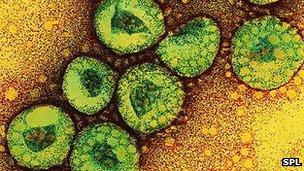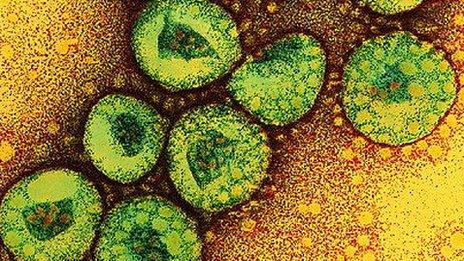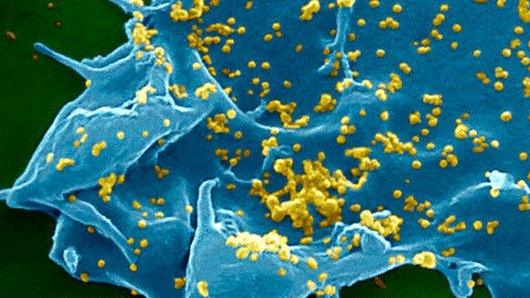Third family member has 'Sars-like virus'
- Published

Scientists have sequenced the infection's full genome
A third member of a family in the UK has been infected with a new respiratory illness similar to the deadly Sars virus, officials say.
It strengthens evidence that the virus can spread between people, however experts say the risk to the general population remains small.
Of the 12 people confirmed to have the virus, five have died.
This case appears to be a milder form of the infection and the patient is not being treated in hospital.
The infection is thought to come from contact with animals. However, if the virus can spread between people it poses a much more serious threat.
This is the fourth case identified in the UK. The first was a patient flown in from Qatar for treatment. The second was linked to travel to the Middle East and Pakistan.
The virus is then thought to have spread from the second patient to his son and another member of the family.
Low risk
Prof John Watson, head of the respiratory diseases department at the Health Protection Agency, said: "Although this patient had a mild form of respiratory illness, as a precaution the HPA is advising that the patient self-isolate and limit contact with non-household members.
"Although this case appears to be due to person-to-person transmission, the risk of infection in contacts in most circumstances is still considered to be low."
Other people who came into contact with the family are being tested.
The exact source of the new virus and how it spreads is still unknown. The leading theory is that it comes from animals and the new Sars-like virus does also appear to be closely related to a virus in bats, external.
However, if the infection needs to jump from an animal to a person with each infection, the threat would be much lower.
The World Health Organization reported cases from within the same family, external in Saudi Arabia in November 2012.
It was impossible to tell whether each patient caught the infection separately - or if it had spread between them.
Earlier this week Prof John Oxford, a virology expert at Queen Mary, University of London, said: "In a family things can spread far more easily than they would spread outside, people share towels and toothbrushes etc.
"If it was somebody who was not related or a nurse or a doctor - that would be a lot more serious."
- Published13 February 2013

- Published2 July 2015

- Published20 November 2012

- Published11 February 2013

- Published30 November 2012
